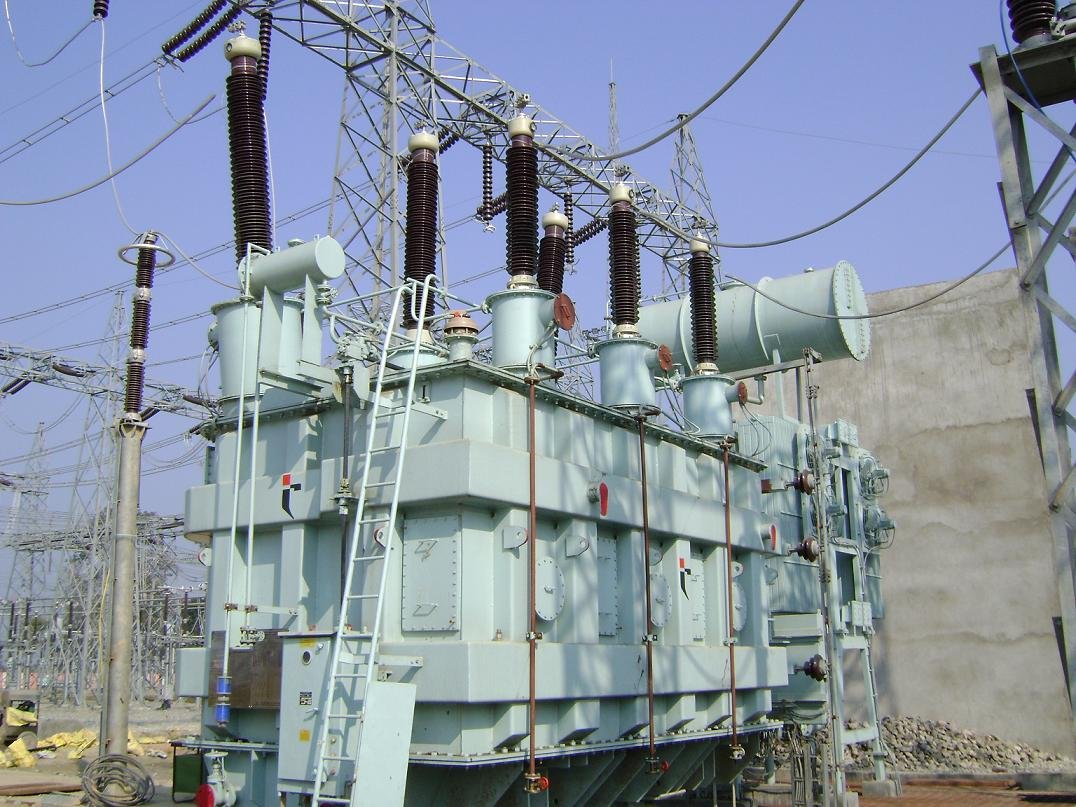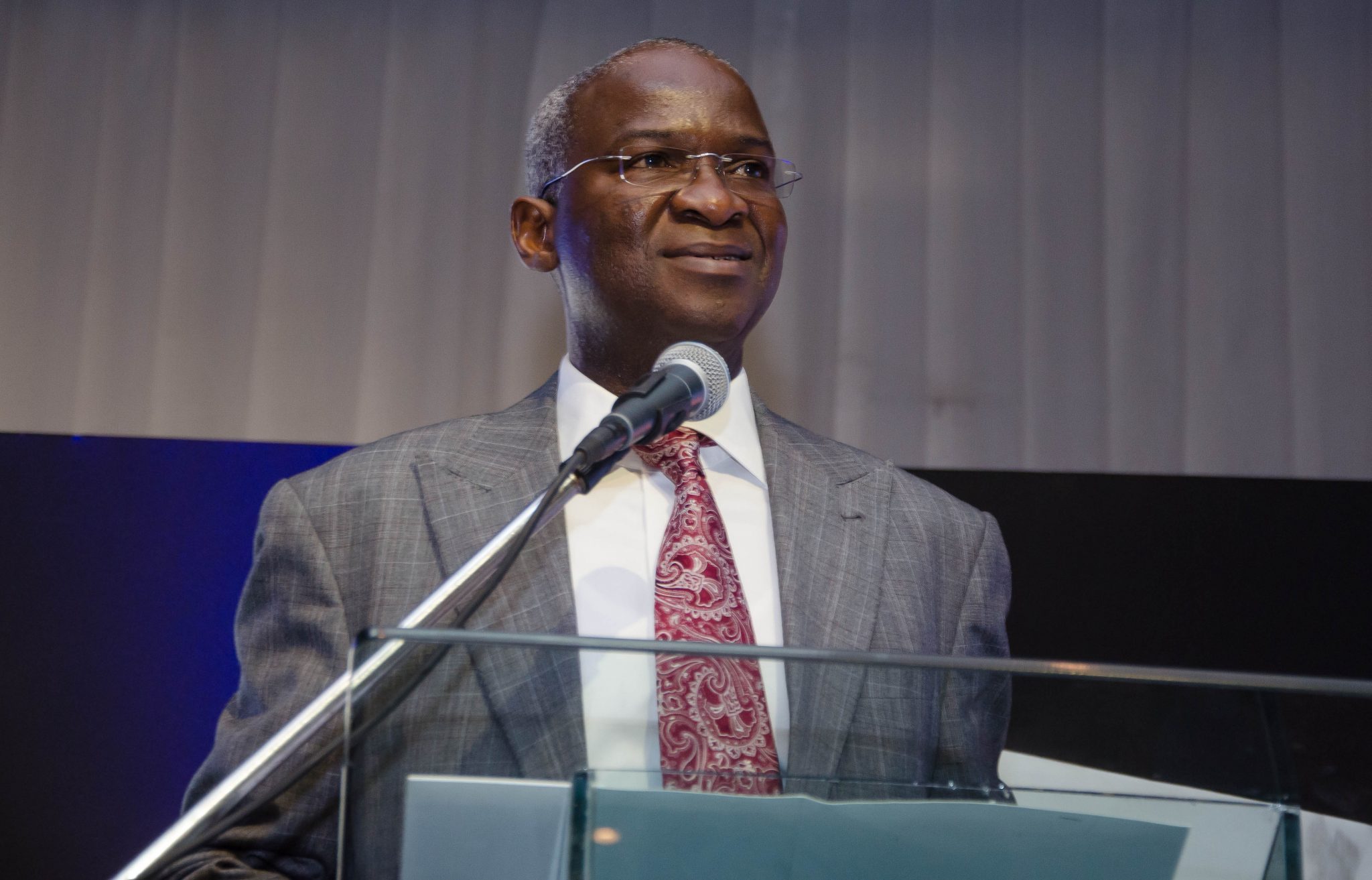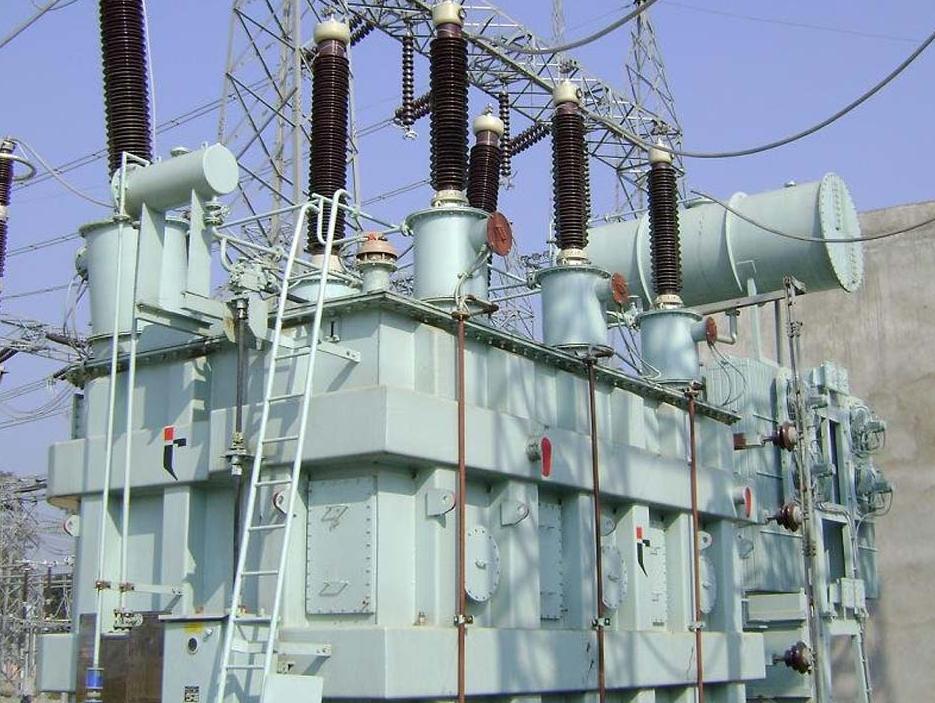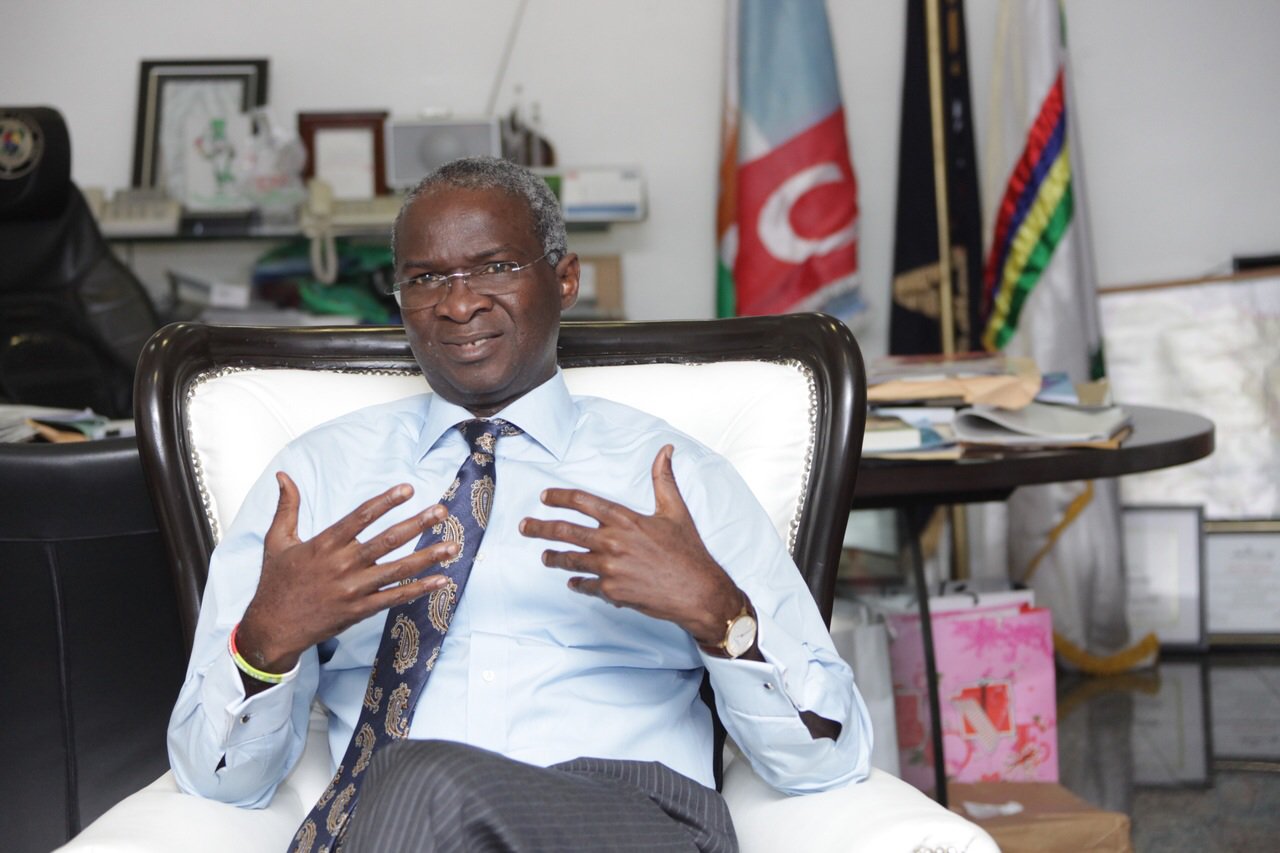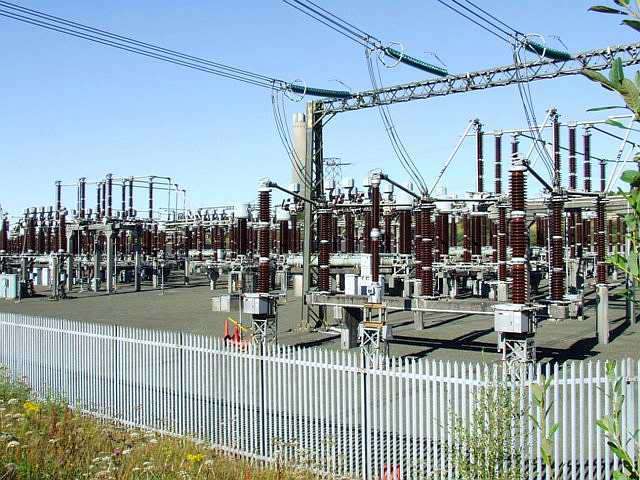The Minister of Power, Works and Housing, Babatunde Fashola on Monday directed the Nigerian Electricity Regulatory Commission (NERC) to immediately step in to ensure that Electricity Distribution Companies (DisCos) improve on their distribution equipment and increase capacity to enable them optimize the use of electrical resources by the Generation Companies (GenCos).
Fashola, who spoke at a press briefing on the “Power Sector State of Play, Next Steps and Policy Directives”, also directed NERC to enforce the contract of DisCos to supply meters and act to ensure the urgent speedy supply and installation of meters with a view to eliminating estimated billing and promote efficient industry and market structures.
The minister, who said the improvement in their distribution equipment and increase in capacity would enable the DisCos take up the available 2,000MW difference between the generation capacity of the GenCos and the distribution capacity of the DisCos, also directed the regulatory commission to stop DisCos from threatening private entrepreneurs from entering the market to supply consumers whom they are unable to supply.
Instead, according the minister, such entrepreneurs should be licensed by the commission subject to its terms and conditions “in order to promote competition and private sector participation and avoid a private monopoly of power”, adding that as clearly stated in Section 71(6) of the Electric Power Sector Reform Act (EPSRA) dealing with Terms and Conditions of licenses, “no exclusivity or monopoly was intended for a license holder such as GenCos or DisCos.”
The aforementioned section states that, “Unless expressly indicated in the license, the grant of a license shall not hinder or restrict the grant of a license to another person for a like purpose and, in the absence of such an express indication, the licensee shall not claim any exclusivity, provided that the commission may allow a licensed activity to be exclusive for all or part of the period of the license for a specific purpose, for a geographical area, or for some combination of the foregoing”.
Noting that the regulatory commission has not issued any such exclusive license to any DisCo, Fashola declared, “If we take into consideration that, after five years of privatisation, there are still people and businesses who do not have power or enough power, common sense and public interest demands that we must not resist ordinary people, small businesses like shops and markets from seeking alternative sources of energy.”
“The truth is that they already have these sources of alternative energy, in small petrol and diesel generators that cost them about N100 per kilowatt hour. If the DISCOs are not resisting the generator sellers who are contributing to pollution, what is the logic of resisting small entrepreneurs bringing mini gas plants to supply a market need,” the minister argued, pointing out that for now, the nation’s developmental needs could not wait “for businessmen who are not yet ready to serve”.
Urging NERC “to act with dispatch,” Fashola said the stated policy statements were made in the national interest, public good, the need to support small businesses, provide access to power for ordinary people and increase productivity; adding, however, that although he was not unmindful of concerns about loss of market or customers by DISCOs, such concerns must be balanced against national interest and that with improvement in their businesses, they would be in a position to use their economies of scale of large volumes of power to buy out or out-price the small entrepreneurs.
The minister implored members of the public who seek more information “to get a copy of EPSRA and read its simple provisions”, adding that the act confers extensive regulatory powers on NERC “including the power in Sections 73 and 74, to amend or cancel a license if the licensee is unable to discharge the duties and obligations imposed by the license.”
Fashola also directed NBET, the bulk trader, to work with Bureau of Public Enterprises (BPE), to fashion out ways to ensure that the DisCos improve their collection remittance and also start to pay their debts saying this would help to promote stability in the Sector. “This business cannot progress if debtors do not pay their debts”, he said.
Stating, however, that it is neither his intention nor that of government to take over the business of the DisCos, the minister declared, “On the contrary, it is government’s desire to see DISCOs thrive and flourish in a competitive environment”, adding, “In the period when they are not yet ready, willing, or able, life must go on and we must find solutions and substitutes as we have seen in other sectors”.
Such sectors, he said, include the broadcasting, newspaper and telecommunication sectors where, according to him, “those who could not compete conceded and left the stage gloriously without breaking down the system”, while those who could compete have brought better living conditions to Nigerians.
Saying that the policy directives should not be seen as anti-privatization, Fashola, who said they were meant to ginger all stakeholders to brace up to their responsibilities to serve the people, added, “I remain convinced that Privatisation is the way forward. Privatisation has brought us mega value in Broadcasting; it has brought us better value in Newspapers, Telecommunications and Banking and other sectors of our national life and I remain convinced that it will deliver in Power”.
“This is not a time to trade blames, because there is enough to go round; rather it is a time to reiterate everybody’s responsibility and urge all of us to brace up, to do what we are obliged to do, which is to serve the people, he said, adding, “I suspect that these facts may appear like a red flag to the bulls of anti-privatisation, but I remain convinced that privatisation is the way forward”.
Recalling that when the public complained about the tariff approved by NERC, he was the one that stood in the forefront of explaining to the public even though it was the Discos who collect the tariff, Mr Fashola declared, “In the face of this picture, where we have power to sell, with more to come, the number of complaints coming to Government for meters, which the DISCOs should supply, and for estimated billings, and mass disconnections when not everybody is owing, cannot continue”.
“Government must act, and will do so. The DisCos bought these assets with their eyes opened, and they must compete to deliver or exit”, Fashola declared, adding that Small businesses who need very little power are not getting enough because the DisCos could not take the power to them.
The minister expressed dismay that investment of GenCos was threatened because they could not utilise the capacity they have installed, adding that in order to improve service to small businesses, Government, acting through the Rural Electrification Agency (REA), was linking Small Power Entrepreneurs with markets like Ariaria in Aba, Sabon Gari Market in Kano, and Sura Market in Lagos which, according to him, contain approximately 37,000, 13,000, and 1,047 shops respectively, which are being metered by the small entrepreneurs who have offered to replace the generators of traders with more efficient power and meters.
According to the minister, there are 15 markets in all which if successfully implemented would provide power to 85,485 shops, empower 205,000 SMEs and create 2,000 jobs during the installation and after in operation and maintenance adding, “The DisCos are agitating that this should not happen, yet they offer no solution.”
On what government has been doing to assist the DisCos and other operators to deliver power, Mr Fashola said as facilitator of business and enabler of the private Sector, government had, through the Central Bank of Nigeria, made available the sum of N213 billion to the power sector at a concessionary interest rate, below market rate, to GenCos and DisCos adding, however, that some DisCos had shied away from taking the facility.
According to him, “probably because of the source of fund conditions, such as opening of letters of credit attached to the performance, some DisCos have not taken the money”, adding that currently NERC detected “an unauthorized use of money by the Ibadan DisCo” and was now taking some remedial measures.
The minister said government has also responded to claims of debts owed by Ministries, Departments and Agencies (MDAs) of government to DisCos before the present administration, a debt which, he said, “was alleged to be in the region of over N70 billion adding that at the cost to government, “several hundreds of thousands of bills, amounting to about 450,000 bills, were verified” while government has ascertained that N27 billion was owed by Federal MDAs to DisCos.
Prior to the tenure of this administration, he said, GenCos and Gas suppliers who produce power, were being underpaid by NBET because the DisCos were under collecting or under-remitting such that GenCos were getting only about 20 per cent of their invoices from Power adding that Government intervened and created N701 Billion Payment Assurance Guarantee (PAG) to NBET to ensure that payment to GenCos improved.
Payment of invoices, according to Mr Fashola, has now increased from 20 to 80 per cent “in the hope that if we move production, DisCos will collect and remit”. He expressed regrets, however, that his office still receives daily reports by mail, letters and e-mails of exorbitant bills by DisCos to Consumers without meters while the remittance by DisCos to NBET has not increased resulting in NBET owing the GenCos N325.7 billion, a debt which he was certain could be settled if NBET could collect what DisCos are currently owing it.
Also, in order to assist in the evacuation of 2,000MW, the difference between what the GenCos can produce and the DisCos can distribute, Fashola said the DisCos were asked to submit their transformer and other equipment requirements adding that, as part shareholders, government has committed to invest N76 billion for the procurement of equipment and installation to help the DisCos evacuate the 2,000 MW to consumers.
Other inputs by government, he said, include settling an inherited court case and making available N37 billion to Meter Asset Providers (MAPs), under the regulations made by NERC to license meter investors, “to help supply meters that the DisCos are under contract to supply but are yet unable to do so”, adding that the gesture was in order to bridge he metering gap and to promote harmonious relationship and reduced friction between the DisCos and their MAPs.
Progress, the minister said, have also been recorded in the sector between 2015 and 2018 including improvement in the generation of power from 4,000 MW (approx) in 2015 to 7,000 MW (approx) in 2018 averaging an increase of 1,000 MW (approx) per annum adding that additional 455 MW (Azura); 215 megawatts (Kaduna), 240 MW (Afam III); 40 MW (Kashimbilla); almost totaling 954 MW would be added this year while 700 MW (Zungeru), 480 MW (Okpai II) about 1,150 MW are projected for 2019, even as the GENCOs are undertaking various repairs, rehabilitation and expansion that would bring on incremental power.
“Transmission has also increased from 5,000 MW (Approx) in 2015 to 7,124 MW (Approx) in December 2017 averaging 1,062 MW per annum increase in transmission capacity. TCN currently has about 90 Transmission projects in various stages of construction and many are to be completed this year”, Fashola said adding, “So, we can transport what the GENCOS generate and there is a Transmission Expansion plan 2018 to 2028 which Government is committed to implement”.
The Minister said although distribution has increased from 2,690 MW (Approx) in 2015 to 5,222 MW (Approx) in 2018, averaging an increase of 844 MW per annum “because the DISCOS have also done some work”, adding that from 2016 when the DisCos complained about lack of enough power to distribute, the problem today was that the DisCos could not distribute all of the Power that was available, leaving the sector with an unused capacity of 2,000 MW (Approx), with the approximately 1,150 MW projected to come this year and 2019.
In the robust question and answer session that followed, Fashola explained that all the solutions being applied to reform the power sector such as the Payment Assurance Guarantee, among others, were contained in the Power Sector Reform Programme (PSRP) which the his Ministry compiled urging stakeholders, including the Media, to read it for understanding.
Also present at the event were the Minister of State, Power, Works and Housing, Suleiman Zarma Hassan; Chairman NERC, James Momoh; and his Vice, Sanusi Garba; Managing Director, Transmission Company of Nigeria, Usman Mohammed; Managing Director Rural Electrification Agency, Damilola Ogunbiyi; other Agency Heads, Directors and Special Advisers.
